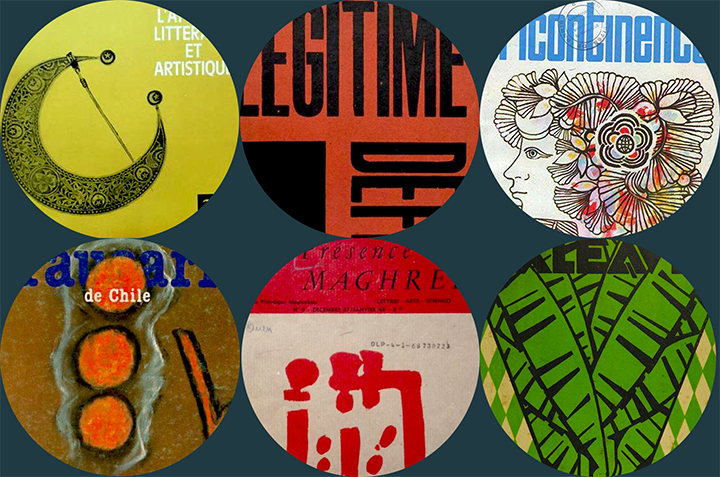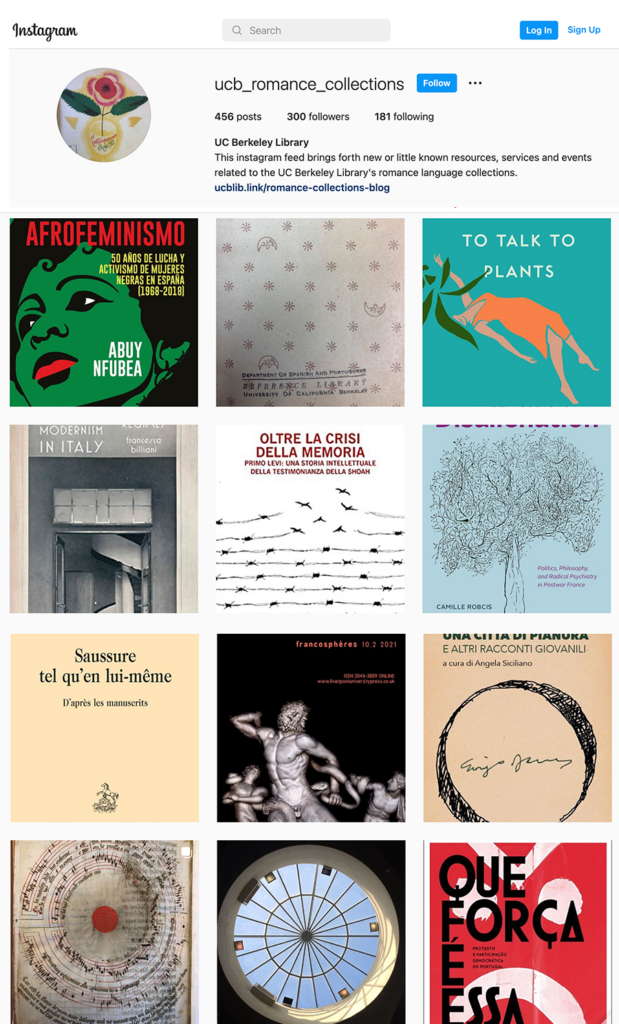Author: cpotts
New Catalan literature
Here’s a selection of Catalan literature titles hot of the press with some not even on the library shelves quite yet. Prizewinners include Maria Barbal, Maite Salord, Anna Gas Serra, Xavier Mas Craviotto, and Laia Viñas. Reviews for all can be read on the open access journal Càracters published by the Universitàt de Valencia.
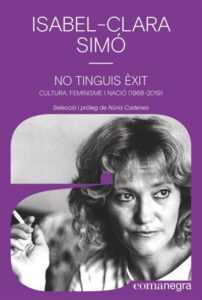


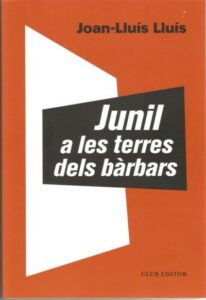

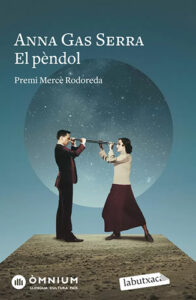
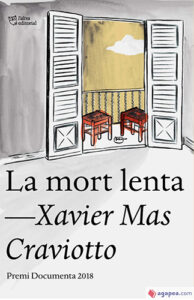
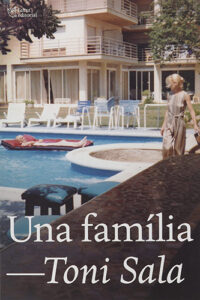
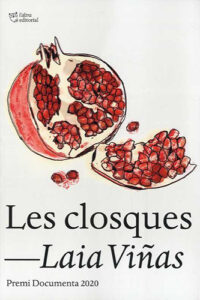
 And don’t forget to check out the Catalan Studies research guide.
And don’t forget to check out the Catalan Studies research guide.
New book by Estelle Tarica
Holocaust Consciousness and Cold War Violence in Latin America proposes the existence of a recognizably distinct Holocaust consciousness in Latin America since the 1970s. Community leaders, intellectuals, writers, and political activists facing state repression have seen themselves reflected in Holocaust histories and have used Holocaust terms to describe human rights atrocities in their own countries. In so doing, they have developed a unique, controversial approach to the memory of the Holocaust that is little known outside the region. Estelle Tarica deepens our understanding of Holocaust awareness in a global context by examining diverse Jewish and non-Jewish voices, focusing on Argentina, Mexico, and Guatemala. What happens, she asks, when we find the Holocaust invoked in unexpected places and in relation to other events, such as the Argentine “Dirty War” or the Mayan genocide in Guatemala? The book draws on meticulous research in two areas that have rarely been brought into contact—Holocaust Studies and Latin American Studies—and aims to illuminate the topic for readers who may be new to the fields.
[from publisher’s site]
Estelle Tarica is Professor of Latin American Literature and Culture and former Chair of the Latin American Studies Program at UC Berkeley. She is incoming Chair of the Department of Spanish & Portuguese. Her previous book The Inner Life of Mestizo Nationalism concers the discourse of indigenismo and mestizaje in Mexico, Peru and Bolivia focusing on the work of José María Arguedas, Rosario Castellanos and Jesús Lara. Her articles have appeared in edited volumes and in the journals Chasqui, Revista de Crítica Literaria Latinoamericana, Latin American Literary Review, Journal of Latin American Studies, Política Común and Yale French Studies, among others.
She discussed her latest book with Alejandra Decker (Hispanic Languages and Literatures, UCB) and Robert Kaufman (Comparative Literature, UCB) on April 7 through the Center for Latin American Studies.
Holocaust Consciousness and Cold War Violence in Latin America.
Albany: State University of New York Press, 2022.
Orienting Os Lusíadas @ 450
This online bibliography brings together resources and scholarship to mark the 450th anniversary of the publication of The Lusiads (Os Lusíadas), the magnum opus of Luís Vaz de Camões (c. 1524/5–1580), an epic that “sings” the story of Portugal’s colonial expansion. Long revered as the most important work in the Portuguese language, it draws inspiration from Greco-Roman epics such as Virgil’s Aeneid and Homer’s Iliad and Odyssey as well as Persian and Hindu mythology. The ten cantos which structure the long narrative poem are in ottava rima and total 1,102 stanzas.
The Lusiads form a key pillar of an entire mythos constructed around nostalgia for the empire, though one that has received increasing critical attention in scholarly and political circles alike. Anthony Soares, for example, highlights the material and bodily violences that lie behind discursive elements of the text’s poetic cantos. Other scholars have traced the Persian and Indian lyric influences in the text (notably Hāfiz and Omar Khayyam), interpreting the national epic against itself. Some have even identified critiques of Empire, as well as satirical treatments of etymologies and ancestral pretenses, within the text itself, calling into question the poet’s own consent for his work to be interpreted as the uncritical pro-imperialist national epic, par excellence. As 2022 marks the 450th anniversary of its publication, new scholarship (see Camões at Harvard: Navigating 450 years of Os Lusíadas) will continue to critically resituate The Lusiads both in its historical moment and in Portuguese and global literature today.
We hope you make use of this bibliography which highlights resources in UC Berkeley’s distinguished Portuguese collection but also which provides access to open and freely available sources online.
Cameron Flynn
Ph.D. student, Romance Languages and Literatures
Claude Potts
Librarian for Romance Languages Collections
Languages of Berkeley exhibition archived on Pressbooks and eScholarship
The Languages of Berkeley: An Online Exhibition

The Languages of Berkeley: An Online Exhibition has now been archived as a catalog in both the Pressbooks open publishing platform and eScholarship—the UC system’s open access repository. Because of the impermanence of the blog environment in which it was created as a sequential exhibit from September 2019 to August 2020, we wanted the content of the multi-dimensional project to live on and remain accessible.
This library exhibition comprises short essays of nearly all of the 59 modern and ancient languages that are currently taught across 14 departments on campus plus a dozen more languages that contributors wished to include. More than 45 faculty, lecturers, librarians, staff, and students contributed to this project which celebrates the magnificent diversity of languages that advance research, teaching, and learning at the University of California, Berkeley.
Since its founding in 1868, students and faculty at UC Berkeley have concerned themselves with a breathtaking range of languages. In support of teaching and research, the University Library, which collects and preserves materials in all languages, now boasts a collection of nearly thirteen million volumes. It is among the largest academic libraries in the U.S. with more than one third of its print resources in more than 500 non-English languages.
Claude Potts,
Librarian for Romance Language Collections
UC Berkeley
 Follow future activities on Instagram.
Follow future activities on Instagram.
The Languages of Berkeley is a dynamic online sequential exhibition celebrating the diversity of languages that have advanced research, teaching and learning at the University of California, Berkeley. It is made possible with support from the UC Berkeley Library and is co-sponsored by the Berkeley Language Center (BLC).
Follow The Languages of Berkeley!
Subscribe by email
Contact/Feedback
ucblib.link/languages
New Book by Timothy Hampton
![Cheerfulness [book cover]](https://pup-assets.imgix.net/onix/images/9781942130604.jpg?w=600&auto=format)
Cheerfulness: A Literary and Cultural History tells a new story about the cultural imagination of the West wherein cheerfulness — a momentary uptick in emotional energy, a temporary lightening of spirit — functions as a crucial theme in literary, philosophical, and artistic creations from early modern to contemporary times. In dazzling interpretations of Shakespeare and Montaigne, Hume, Austen and Emerson, Dickens, Nietzsche, and Louis Armstrong, Hampton explores the philosophical construal of cheerfulness — as a theme in Protestant theology, a focus of medical writing, a topic in Enlightenment psychology, and a category of modern aesthetics. In a conclusion on cheerfulness in pandemic days, Hampton stresses the importance of lightness of mind under the pressure of catastrophe. A history of the emotional life of European and American cultures, a breathtaking exploration of the intersections of culture, literature, and psychology, Cheerfulness challenges the dominant narrative of Western aesthetics as a story of melancholy, mourning, tragedy, and trauma. Hampton captures the many appearances of this fleeting and powerfully transformative emotion whose historical and literary trajectory has never before been systematically traced.
[from publisher’s site]
Professor Hampton, who holds a joint appointment in the Departments of French and Comparative Literature, is director of the Townsend Center for the Humanities. He discussed his recent book with Seth Lerer (Literature, UC San Diego) on April 20 through the Townsend Center’s Berkeley Book Chats.
Cheerfulness: A Literary and Cultural History.
Princeton: Princeton University Press, 2022.
New Book by Michael Lucey
Michael Lucey offers a linguistic anthropological analysis of Proust’s In Search of Lost Time.
What happens when we talk? This deceptively simple question is central to Marcel Proust’s monumental novel In Search of Lost Time. Both Proust’s narrator and the novel that houses him devote considerable energy to investigating not just what people are saying or doing when they talk, but also what happens socioculturally through their use of language. Proust, in other words, is interested in what linguistic anthropologists call language-in-use.
Michael Lucey elucidates Proust’s approach to language-in-use in a number of ways: principally in relation to linguistic anthropology, but also in relation to speech act theory, and to Pierre Bourdieu’s sociology. The book also includes an interlude after each of its chapters that contextualizes Proust’s social-scientific practice of novel writing in relation to that of a number of other novelists, earlier and later, and from several different traditions, including Honoré de Balzac, George Eliot, Virginia Woolf, Nathalie Sarraute, and Rachel Cusk. Lucey is thus able to show how, in the hands of quite different novelists, various aspects of the novel form become instruments of linguistic anthropological analysis. The result introduces a different way of understanding language to literary and cultural critics and explores the consequences of this new understanding for the practice of literary criticism more generally.
[from publisher’s site]
Professor Lucey, who holds a joint appointment in the Departments of French and Comparative Literature, discussed his recent book with Suzanne Guerlac on April 6 through the Townsend Center’s Berkeley Book Chats. The event was recorded and is available online.
What Proust Heard: Novels and the Ethnography of Talk.
Chicago: University of Chicago Press, 2022.
The Legacies of Ukrainian Culture [online event]
Even as much of the world has been preoccupied with the immediate military and geopolitical stakes of Russia’s war on Ukraine, panelists turn their attention to the trajectory of Ukrainian culture over the longer arc of history and in the contemporary post-Soviet era.
In a conversation moderated by Harsha Ram (Slavic Languages & Literatures and Comparative Literature), Ukrainian intellectuals and scholars of Ukraine share their perspectives on Ukraine and its culture.
Participants:
Alex Averbuch, poet and literary scholar originally from the Luhans’k region.
Vitaly Chernetsky (University of Kansas), Ukrainian-American literary scholar and author of Mapping Postcommunist Cultures: Russia and Ukraine in the Context of Globalization.
Mayhill Fowler (Stetson University), cultural historian and author of Beau Monde on Empire’s Edge: State and Stage in Soviet Ukraine.
Alisa Lozhkina, independent art curator and critic.
Cosponsored by the Townsend Center for the Humanities, the Department of Slavic Languages & Literatures, and the Institute of Slavic, East European, and Eurasian Studies.
Artwork: Untitled (Detail) by Kinder Album, mixed media on paper, 2019, Lviv.
Journal Portal for Scholars of Decolonial and Diaspora Studies
The Portail Mondial des Revues/Global Journals Portal of the French Institut national d’histoire de l’art (INHA) comprises a collection of over one thousand decolonial and diasporic periodicals spanning the nineteenth and twentieth centuries. Often ephemeral and with brief publication histories, these journals offer glimpses into the literary critical and social critical practices of their times.
Publications in the database can be filtered by geographical area, language, and topic (literature, gender studies, diaspora, etc.). For those that are open access, links are provided directly inside the database. Each entry contains a list of articles and books that have recently cited the journal, allowing scholars easy access to critical work surrounding each publication.
At the core of the collection are works published in Paris, particularly during the entre-guerres period, that convey the voices of migrant and diasporic communities. Among these are journals such as the anti-imperialist Phản-Đế (1934), published by the Ligue contre l’impérialisme et l’oppression coloniale, and Césaire and Senghor’s L’Étudiant noir (1935). Many publications such as L’Arche (1944-1948), with joint editions from both Paris and Algiers, publish literary texts from around the world, placing them alongside reflections on contemporaneous philosophical and political debates.
Works span across several dozen languages and every continent of the globe. Publications such as the Catalan El Cami and the Haitian Bon Nouvèl account for just two of many periodicals published in minority languages and creoles. Other publications offer transnational and multilingual perspectives such as the Franco-uruguayan Entregas de la Licorne and Tricontinental, a social critical periodical published through the Organization for Solidarity of the Peoples of Africa, Asia, and Latin America.
Cameron Flynn
Check out the Romance Language Collections on Instagram
The Romance Language Collections Instagram feed brings forth little known and new resources and services in the UC Berkeley Library. Once you start following you’ll instantly receive early notices of new books, e-resources, exhibits, readings and more through your smartphone or any web browser.
Trial access to Classiques Garnier Numérique
The UC Berkeley Library has set up a 60-day trail to all ebook collections and ejournals published by Classiques Garnier Numérique in Paris. Several years ago, the Library purchased perpetual access to several of its databases including Grand Corpus des dictionnaires [du 9e au 20e siècle], Grand Corpus des grammaires françaises, des remarques et des traités sur la langue (XIVe-XVIIe s.), and Corpus Montaigne but not yet to any of the ejournals or ebook collections.
Since 1896, Éditions Classiques Garnier has been publishing literary works from around the world, French and foreign, ancient and modern, in reference editions. In 2009, under the editorial direction of Claude Blum, the independent publishing house expanded the scope of its publications to all areas relating to literature and social sciences: editing studies and essays in the leading fields in French and foreign literature, linguistics, history, art, music, law, economics and social sciences. The quantity of the signature yellow-bound paperback books in Berkeley’s collection is extensive. The journals we currently subscribe to in print include La Lettre clandestine, Revue d’Histoire et de Philosophie religieuses, Cahiers Octave Mirbeau, Revue Nerval, Bulletin de la Société Paul Claudel, and Constellation Cendrars. Ten of their journals, including Revue d’histoire littéraire de la France, are partially archived in JSTOR but not all available to UCB.
Access to more of the digital content from this publisher would greatly enhance our electronic holdings and expand the accessibility of content in French. Please give it a try before January 15, 2022 and let me know if you’d like to recommend any titles or collections we might put on our wish-list.
Claude Potts
cpotts AT berkeley DOT edu
Librarian for Romance Language Collections
![[book cover]](https://update.lib.berkeley.edu/wp-content/uploads/2022/06/tarica.png)
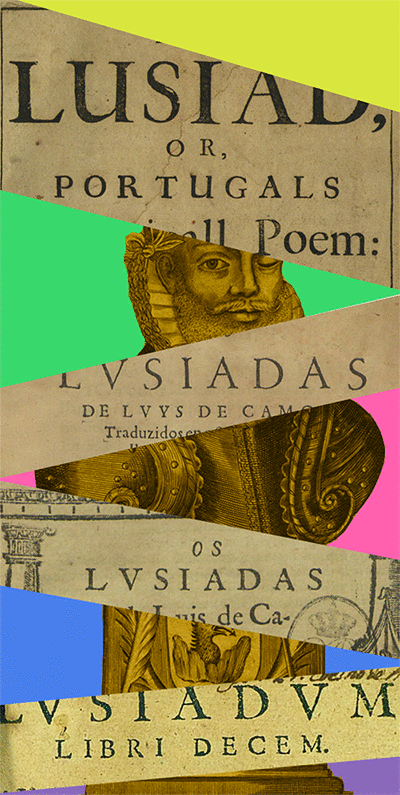
![The Languages of Berkeley [fan]](https://update.lib.berkeley.edu/wp-content/uploads/2019/02/fan_languages-450px.jpg)
![What Proust Heard [book cover]](https://press.uchicago.edu/.imaging/mte/ucp/medium/dam/ucp/books/jacket/978/02/26/81/9780226816678.jpg/jcr:content/9780226816678.jpg)

